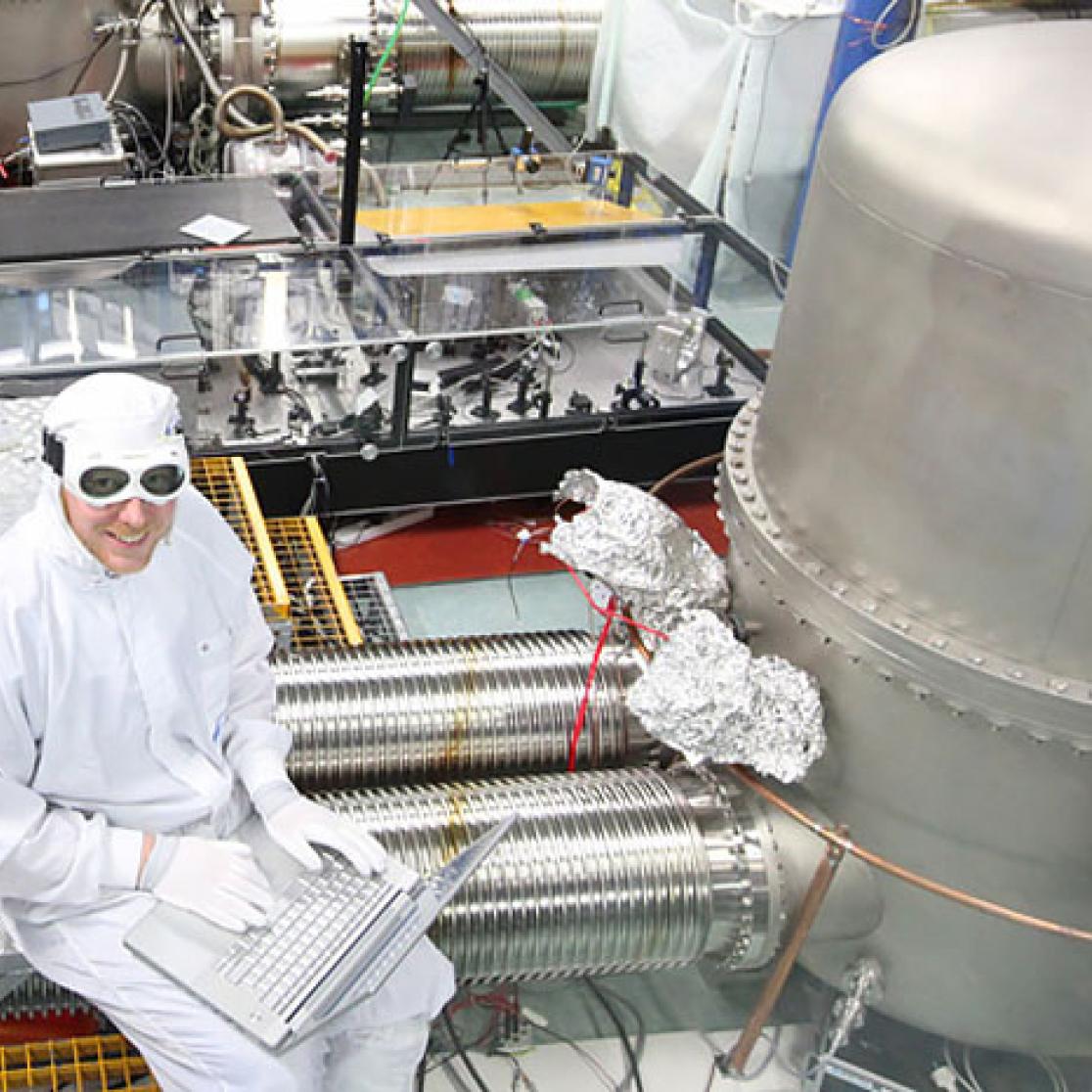Stefan Hild appointed professor of Gravitational Research; UM joins Nikhef
Maastricht University (UM) has appointed Prof. dr. Stefan Hild as professor of Gravitational Research. The move paves the way for UM to become a full member of the National Institute for Subatomic Physics (Nikhef).
The appointment of Prof. dr. Stefan Hild serves to strengthen particle physics research within the Faculty of Science and Engineering. This is in line with UM's ambition to further develop its education and research in science and technology. As a member of the national gravitational wave programme, professor Hild will attract internationally leading academics to the Fundamental Physics research group.
International specialist
Born in Celle, Germany in 1978, Hild is currently professor of Experimental Physics at the University of Glasgow. He will take up his new position at UM on 1 August 2019. Hild is known internationally as a specialist in the design and construction of ultra-sensitive lasers for measuring vibrations of spacetime as predicted by Einstein’s 1915 theory of relativity.
ET Pathfinder and Einstein Telescope
In Maastricht, professor Hild will help build the ET Pathfinder, a test centre where new ideas for instruments for measuring gravitational waves can be tested and developed. The ET Pathfinder is a prototype of the Einstein Telescope: a deep-cooled, triangular underground laser detector ten kilometres in length, which in theory will be able to explore the universe as far back as the Big Bang. This new science and associated innovations are of great importance for students and researchers as well as entrepreneurs and institutions in the (Eu)region.

Accession to Nikhef
With the appointment of professor Hild, UM will join the nationwide collaboration Nikhef. With this, Maastricht joins a productive cooperation in the field of (astro) particle physics of the NWO Institutes Organisation, Radboud University, the University of Groningen, Utrecht University, the University of Amsterdam and Vrije Universiteit Amsterdam.
Prof. dr. Martin Paul, President of UM, is excited about the opportunities that come with the accession to Nikhef: “In recent years, Maastricht University has been working on the successful development of science and technology education and research. The development of the Fundamental Physics research group is part of this. The accession to Nikhef will give a boost to cooperation in the field of (astro) particle physics and offers our researchers and students even better access to the international network and facilities.”
Maastricht is becoming the innovation centre for measuring gravitational waves.
Prof. Stefan Hild
Photo impression
Also read
-
UM seeks new balance between the university and student associations
Maastricht University is suspending its relationship with student associations Tragos and Circumflex until further notice. Discussions with the boards of these associations have revealed that agreements outlined in the Code of Conduct have not been upheld. Experience from recent years shows that...

-
Discrimination makes women want to work less
Recent research by scientists at Maastricht University in the Netherlands and Aarhus University in Denmark shines a new light on the gender pay gap. Discrimination makes women want to work fewer hours.

-
Lisa Brüggen appointed at Royal Holland Society of Sciences and Humanities
The Royal Holland Society of Sciences and Humanities (KHMW) has appointed SBE Professor Lisa Brüggen as a scientific member.










